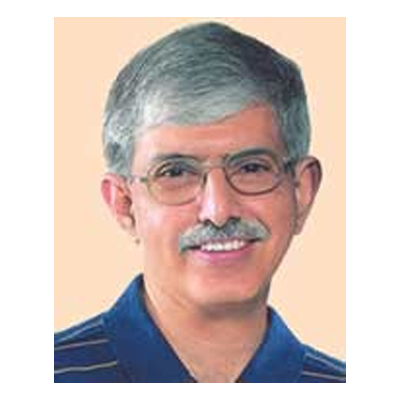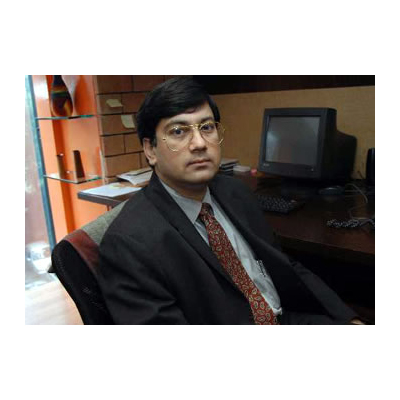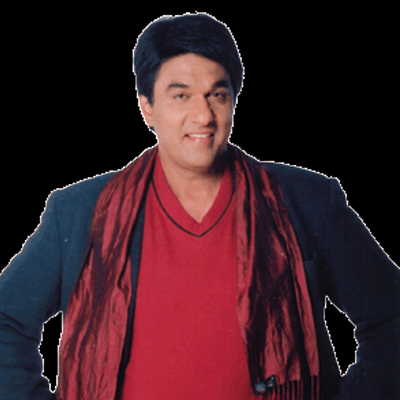New Age Power Dressing For Women
Power or business dressing for women, is all about blending the casual with the chic. Nothing too loud or flashy, but definitely a criss-cross of buttoned-up business basics along with a weekend warrior full business attire. The rule of thumb here is to be a little conservative yet stylish without being completely casual.
Says Mita Mangaokar, a fashion designer from NIFT [National Institute of Fashion Technology who has worked for varied clients ranging from Kala Niketan to Scullers," just take a look around at the movers and shakers around you to evaluate your own dress code. I would say, there's no casual- chic look for those pounding the pavement for a new job.
She further elaborates, " Go in for a business look. Dress appropriately, so that one best projects the image of success in whatever one does. Just take care not to appear too flashy by wearing expensive clothes or a dozen pieces of jewelry. Your attire should send the message that you can fit into the work environment.
 Sari, salwar kameez or shirt/trouser?
Sari, salwar kameez or shirt/trouser?
Some years ago, the sophisticated workingwoman waltzed into the boardroom in salwars and saris. Now, several summers later, she has done away with that six-yard mess and the noose e around the neck called dupatta. The working woman has said 'hi' to corporate dressing and slipped into trousers and shirts. On the roads, in your office, at your nearest cafe, she sports work wear that screams comfort and style.
"I feel more confident and less conscious while attending a business meeting in corporate wear rather than a salwar. In fact, that makes me feel more assertive," says Janet GomGomes a business development manager, whose corporate wardrobe is sprinkled with Allen Solly and Scullers.
However, not all women are ready to do away with sarees and salwar-kameez, yet. "When it comes to Friday dressing, jackets and well-fitted shirts, make way for jeans and skirts, but I am not ready to write off salwar-kameez so soon. As a change from the corporate dress code, one can opt for salwars once in a while,"says Mohini Mehta , a 40 year old PRO working for a multinational. However, more and more women in twenties are opting for western attire. Semi formal is all time favourite with many as it suits many who attend meetings and then probably meet up for cocktails or dinner.
Adds Mita, " there's a wide range you can choose from. Arrow has launched blazers, knits and jackets besides the shirts and trousers. The range starts from Rs. 700 onwards. However, jackets come with an expensive tag. The range for jackets starts from Rs. 2500. Allen Solly, Scullers, Westside, Shoppers' Stop and Blackberries too are eyeing the working women. With emphasis on fabric, cut and colour, these brands offer a wide range of trousers that can be matched with shirts, jackets, knits and pullovers. Also, when it comes to fabric, the most preferred are polynosic, cotton, lycra and linen," says Mita
ACCESSORIES
Office wear jewellery should be minimal and should give a sophisticated and professional look. "I suggest ear studs or a single bracelet," says Pallavi a senior designer at Tanishq. "A small solitaire diamond looks classy and simple. Platinum goes well with office wear," she says.
Here, Mita offers some more pointers in accessories:
 Handbags: A 'ladies special' leather brief case or a leather bag preferably in black/brown is ideal for carrying daily to the office. An elegant wristwatch will complete the look.
Handbags: A 'ladies special' leather brief case or a leather bag preferably in black/brown is ideal for carrying daily to the office. An elegant wristwatch will complete the look.
 Sandals: The right kind of footwear is very important. Leather shoes would go well with semi formal western wear and sandals [not colorful though] would be fine for Indian outfits. They should not be so high as to cause discomfort.
Sandals: The right kind of footwear is very important. Leather shoes would go well with semi formal western wear and sandals [not colorful though] would be fine for Indian outfits. They should not be so high as to cause discomfort.
 Hair: Your hairstyle should be neat and your hair colour should be natural-and should also complement your complexion. Wild colours (blue, pink, platinum streaks, etc.) and hair glitter are a no-no.
Hair: Your hairstyle should be neat and your hair colour should be natural-and should also complement your complexion. Wild colours (blue, pink, platinum streaks, etc.) and hair glitter are a no-no.
Nails: Short, well-manicured nails in one tone, including French manicures, are ideal. Long exotic and colorfully designed nails send the wrong message to a potential employer.  rk.
rk.
Make -up too should be minimal and naturalistic. Pastel shades of lipstick with a light eye liner should do fine.
Last but not the least, look like a winner, as everybody loves a winner.
* Act as if you are a very important person.
* Strive to appear like a person with a future.
* Try to show others that you are going up the ladder.
* Never lose your composure, even in difficult situations.
Groom yourself to be a person destined to succeed. And above all, be true to yourself and trust your instincts!


 Follow Us
Follow Us







 This book has been written to cater the needs of three slots of people. First of all, for Management schools because there is hardly anything Indian that is taught to the students today. The second target readers are going to be sales and marketing professionals to give them a broader perspective. And thirdly for, advertising individuals.
This book has been written to cater the needs of three slots of people. First of all, for Management schools because there is hardly anything Indian that is taught to the students today. The second target readers are going to be sales and marketing professionals to give them a broader perspective. And thirdly for, advertising individuals.
 I had read Mahabharat at a very young age, so I was familiar with all the characters in it. One fine day, I got a call from Gufi asking me to act in Mahabharat. Since, it was one of my favourite subjects, I said would love to take it up. I was shorlisted to act as Duryodhan but somehow, I felt that I was not meant to be a villian.
I had read Mahabharat at a very young age, so I was familiar with all the characters in it. One fine day, I got a call from Gufi asking me to act in Mahabharat. Since, it was one of my favourite subjects, I said would love to take it up. I was shorlisted to act as Duryodhan but somehow, I felt that I was not meant to be a villian.
 JOB: Cut your cloth, tailor your clothes, depending on your job. Clothes definitely make a man - or a woman. If your job is in administration or finance in the back end of a company, don't dress like you are a yuppy film star. Even if you can afford it. Even if dressing down is in.
JOB: Cut your cloth, tailor your clothes, depending on your job. Clothes definitely make a man - or a woman. If your job is in administration or finance in the back end of a company, don't dress like you are a yuppy film star. Even if you can afford it. Even if dressing down is in. BE BOLD WITH TIES
BE BOLD WITH TIES
 Nice gold ones or black links can add to your appearance.The tableau of colognes and eau de toilettes and parfums has expanded in shopping malls. You have a variety of fragrances to choose from: be they woody or citrony. Take your pick depending on the occasion and your mood. Remember your cologne should be subtle and not be screaming for attention. Make sure your wallet is made of real leather not of a smelly plastic; everytime you pull it out people will appreciate your fondness for the finer things in life. Similarly, an elegant watch should complete your outfit. Brand names always leave an impression, but think sophistication first and foremost.
Nice gold ones or black links can add to your appearance.The tableau of colognes and eau de toilettes and parfums has expanded in shopping malls. You have a variety of fragrances to choose from: be they woody or citrony. Take your pick depending on the occasion and your mood. Remember your cologne should be subtle and not be screaming for attention. Make sure your wallet is made of real leather not of a smelly plastic; everytime you pull it out people will appreciate your fondness for the finer things in life. Similarly, an elegant watch should complete your outfit. Brand names always leave an impression, but think sophistication first and foremost. the deciding factors, aim for leather footwear. If possible, avoid rubber soles and opt for leather ones instead. Black, brown and oxblood (i.e. burgundy) are your colors. Always make sure they are properly shined
the deciding factors, aim for leather footwear. If possible, avoid rubber soles and opt for leather ones instead. Black, brown and oxblood (i.e. burgundy) are your colors. Always make sure they are properly shined



